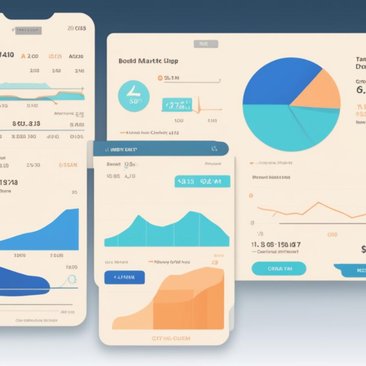Technology Goals
Celery, Airflow, and RabbitMQ together form a powerful suite for managing distributed tasks, workflow orchestration, and message brokering in modern software systems.
Celery is a distributed task queue system that allows developers to manage asynchronous or scheduled tasks efficiently. It’s highly scalable and used for executing tasks in the background, such as sending emails, processing data, or running computations, allowing systems to offload heavy tasks and improve overall performance.
Apache Airflow is a workflow orchestration platform that lets users programmatically author, schedule, and monitor workflows. Airflow is ideal for automating complex workflows and managing dependencies between different tasks, making it widely used in data pipelines, ETL processes, and machine learning workflows.
RabbitMQ is a highly reliable message broker that facilitates the communication between different components of a distributed system. It enables message-based interactions between applications, providing queuing, routing, and delivery of messages across distributed systems.
In our projects, Celery is often used for background task processing, Airflow for automating and orchestrating workflows, and RabbitMQ for reliable message passing between services. Together, these tools provide a complete solution for managing large-scale, asynchronous systems that require high reliability and scalability.
Strengths of Celery, Airflow, and RabbitMQ in Our Projects
Celery’s strength lies in its ability to handle asynchronous tasks and distribute them across multiple workers, making it ideal for systems that need to scale task processing in the background. It integrates seamlessly with Python applications and supports task scheduling, allowing us to automate repetitive tasks and reduce bottlenecks in performance.
Airflow adds another layer of control, enabling the orchestration of complex workflows. With Airflow, we can schedule tasks, manage dependencies, and monitor workflows through its intuitive web interface. This is particularly valuable for managing ETL jobs, data pipelines, and automation processes across multiple environments.
RabbitMQ excels in providing reliable message queuing and delivery, ensuring that tasks sent between systems are processed in the correct order and without loss. It plays a crucial role in decoupling services, ensuring high availability and fault tolerance in distributed architectures. RabbitMQ’s support for complex routing and message exchange patterns allows us to design scalable systems capable of handling large volumes of data.
Comparison with Other Technologies
Compared to task queues like Redis Queue (RQ), Celery is more feature-rich and supports advanced workflows, including task retries and monitoring. Celery's ability to scale across multiple workers makes it more suitable for high-load systems.
Airflow is often compared to tools like Luigi or Prefect, but it stands out for its extensive ecosystem and flexibility in handling complex workflows. Airflow’s Pythonic nature and rich integrations make it ideal for data pipelines, unlike simpler task schedulers.
RabbitMQ, while similar to message brokers like Kafka, focuses on reliable message delivery and real-time message exchange, making it a better choice for tasks that require complex routing and low latency. Kafka, in contrast, is better suited for event streaming and log aggregation, where throughput is prioritized over message delivery guarantees.
Real-world Applications in Client Projects
- Task Scheduling and Processing: For a SaaS application, Celery was used to process background tasks such as sending email notifications, generating reports, and running long computations. RabbitMQ acted as the message broker, ensuring reliable task dispatching between services.
- Data Pipeline Automation: In a data-driven project, Apache Airflow was used to orchestrate complex data pipelines, ensuring that data extraction, transformation, and loading (ETL) jobs ran smoothly across various environments. RabbitMQ enabled communication between different pipeline components.
- Real-time Messaging System: For a real-time analytics platform, RabbitMQ was implemented to handle communication between different microservices. The system relied on Celery to process messages asynchronously, while Airflow managed the scheduling and monitoring of workflows.
Client Benefits and Feedback
Clients have noted significant improvements in performance and scalability after implementing Celery, Airflow, and RabbitMQ in their systems. One client in the financial sector reported a 50% reduction in processing time for background tasks by using Celery with RabbitMQ, while another in e-commerce saw improved data pipeline reliability thanks to Airflow’s workflow management features.
RabbitMQ’s message broker capabilities allowed clients to build systems that are more fault-tolerant and resilient to failures, ensuring that tasks are processed even under high load.
Conclusion
Celery, Airflow, and RabbitMQ together form a powerful trio for managing distributed tasks, automating workflows, and handling message-based communication in large-scale applications. Whether used for background processing, workflow orchestration, or reliable messaging, these tools enable us to build efficient, scalable systems capable of handling complex workflows and real-time data processing.




